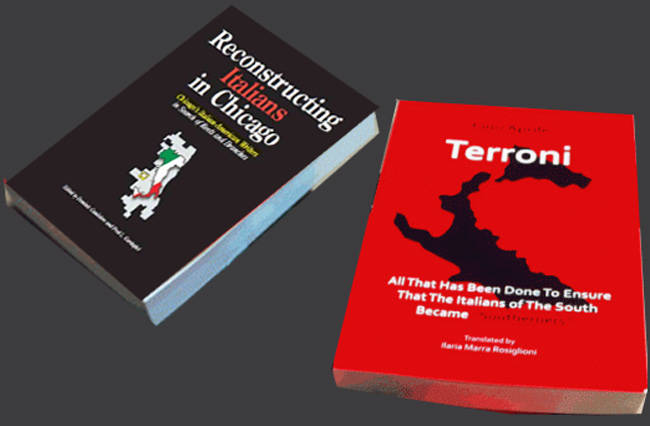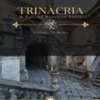The simultaneous publication of "Reconstructing Italians in Chicago" (Italian Cultural Center, 2011), and the English translation of “Terroni” (Bordighera Press, 2011) is a delicious juxtaposition of the “same’o same’o” nostalgic reminiscences with hopefully a ‘new historiography of the Italian American people’ – a history of our people and culture south of Rome. “Roots” is in-fact NOT about the “roots” of Italian Americans, for our roots are in Italy - south of Rome. Accordingly, “Terroni” is the real history of the “roots” of the Italian American people. Would that our amazingly creative, talented and dedicated Italian American literati read it and finally stop trying to document the minutia of every family dinner, festival and street dance in our 100+ year history; instead ask themselves what is the meaning of the word “Italian” in the phrase “Italian-American”? “Terroni” goes a long way towards answering that question. Mass Media give the Italian American youth “Jersey Shore”, and the Italian American literati give them “Nonna’s Kitchen”. No one gives our youth the “reality” of the profound history and culture they are heir’s too, or the mighty Terroni from which they are descended – no one until Ilaria Marra Rosiglioni and the ILICA foundation brought us the translation of Pino Aprile’s “Terroni”. Let the New Historiography of the Italian American people and culture begin now – with the breathtaking story told in this great book “Terroni”!
In Rochester, NY there is a sizable Gaeta population. Up through the 1950s, while the original circa 1900 immigrates were present, the Gaeta Society was very robust. Today, the aging children and graying grandchildren of the original immigrants keep the nostalgic remnants of that society alive. For purposes of an Italian American local history article, I interviewed some of the current members. As with all southern Italian groups, I was told about the local foods, saints, festivals and other traditions of Gaeta.
What is interesting, reflecting back on those interviews, after reading “Terroni”; in all the discussion about cultural (food and music) and history (medieval and ancient), no mention was made of “The Kingdom of the Two Sicilies”, the Bourbon King who made his last stand in Gaeta, and most especially absent was any reference to the incredible dehumanizing atrocities committed in Gaeta by the Piedmontese conquers.





































i-Italy
Facebook
Google+
This work may not be reproduced, in whole or in part, without prior written permission.
Questo lavoro non può essere riprodotto, in tutto o in parte, senza permesso scritto.